Gertrude Tuckwell: a guest post by Tammy G
My beloved wanted to write something about the women of the early 20th century who, having got the vote, were beginning to exercise real influence on government policy on social issues. Her starting point was Gertrude Tuckwell, who she had come across when researching the development of legal aid policy in the 1920s. Who was this woman bombarding the Lord Chancellor’s Office with letters about the legal needs of the poor? And why were the civil servants so worried about her?
So, being the woman she is, she wrote about Gertrude Tuckwell and then, this being International Women’s Week, she suggested I publish it on my blog. And here it is.
Gertrude Tuckwell was a powerful character and interesting in her own right but she was also interesting as an example of the officer cadre of the Monstrous Regiment of Women who, with innumerable advances and reverses throughout the 20th century were, in the end, to shape the way that government today responds to a range of social issues.
Take it away, Tammy G.
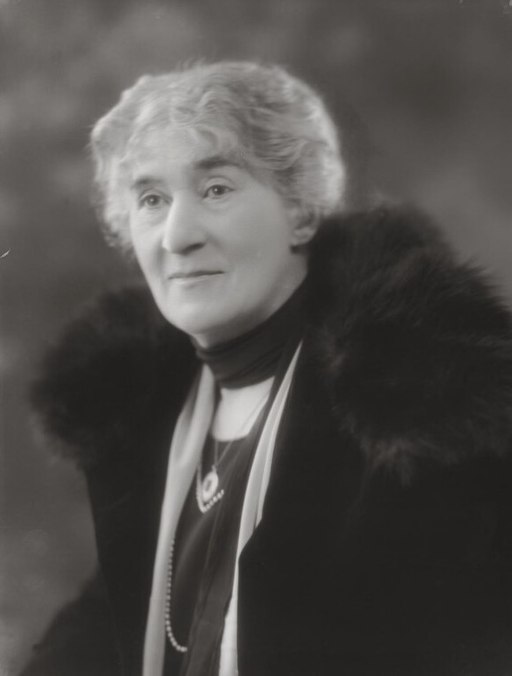
Gertrude Tuckwell was born in 1861, the daughter of a “radical parson”, and she was home educated in the Christian socialist tradition. Her aunt was the Victorian feminist, Emilia Dilke (sometimes described as model for the Middlemarch heroine, Dorothea). Dilke clearly inspired her niece with both the confidence and desire to change the world. Tuckwell trained as a teacher, worked with London working class children, and became a trade union organiser. In 1908 the Woman Worker newspaper described her as “the power that moves a myriad organisations”, through campaigns to ban child labour, organize women workers and prohibit poisonous glazes in pottery.
In 1919, Gertrude Tuckwell was one of the first seven women to become magistrates — and this inspired her to start a host of new campaigns. She is known for her work in improving the treatment of children coming before the courts, through specialist courts and greater use of probation. As a magistrate, Tuckwell also heard claims by wives and mothers for maintenance, and she learned at first-hand how difficult women found the process. This made her add legal aid to her many causes.
The Lord Chancellor Office files provide an insight into how “Miss Tuckwell” operated. She had a wide network of contacts, and she knew how to harry organisations to pass resolutions, set up committees, and write letters. She also worked within a powerful circle of other women, who had learnt their skills in the suffrage movement and could now turn their attention to other issues.
In 1924, Tuckwell chaired a committee of the Magistrates’ Association to improve legal assistance. In this role she bombarded the Lord Chancellor’s Permanent Secretary, Sir Claud Schuster, with ideas for more voluntary legal help.[1] She also persuaded the National Conference of Labour Women to discuss a report on legal aid, and organised a group to take things forward, which included Clara Rackham and Marion Phillips.
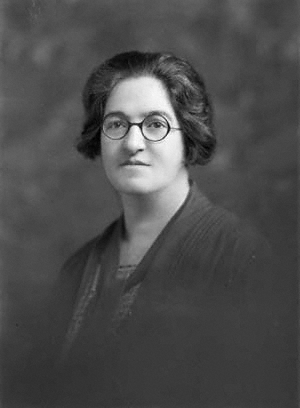
Clara Rackham also came from a relatively privileged background, and had studied at Newnham College, Cambridge. A prominent suffragist, Rackham had recently transferred her loyalty from Liberal to Labour Party and had also been appointed as a magistrate. Marion Phillips was an Australian, who had come to London to study for a doctorate. As Secretary of the Women’s Labour League, she was a pivotal figure, who saw her role as keeping the Labour Party “informed about the needs of women”. In 1929 Phillips would be elected as a Labour MP.
The Labour women contacted Margery Fry at the Howard League for Penal Reform. Fry was a Quaker, graduate of Somerville College at Oxford, and a leading penal reformer. She also wrote to Schuster.[2]
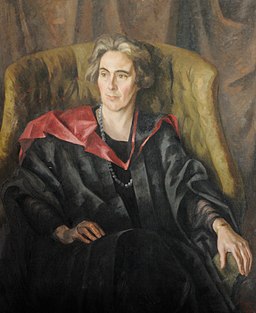
The campaign would not be effective without male support, and the women exploited their many contacts within the churches and university settlement movement. University settlements had been set up in the 1880s to encourage the university elite to help the poor. They worked through settlement houses such as Toynbee Hall in Whitechapel, which provided the first “Poor Man’s Lawyers”. The Federation of Residential Settlements were natural allies and passed a resolution calling for “equal justice for rich and poor”.
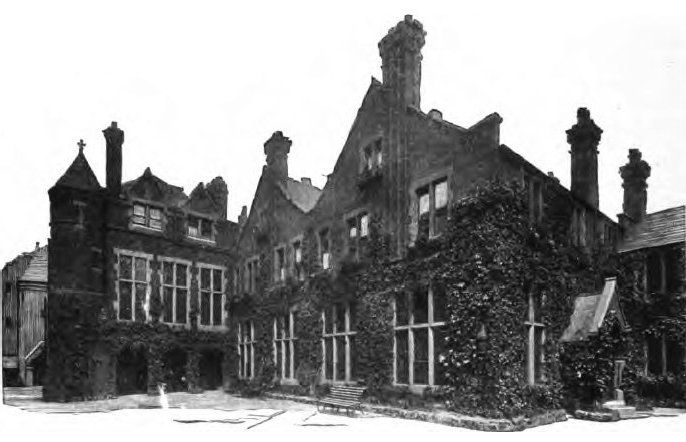
In July 1924, the Salvation Army was raising the issue. Although the Salvation Army was officially non-political stance, it had several leading members who were “strongly invested in the suffrage movement”.[3]
Then in November 1924, Gertrude Tuckwell was able to draw Schuster’s attention to a letter to The Times from 17 leading churchman, led by the Bishop of London. The letter argued that as “the state has made provision for the education and health of the poor” it should also provide them with legal advice and assistance. Schuster read this with dismay. “I must admit that it made my heart sink” he wrote back.
At this point the pressure had become too great to simply ignore. Schuster did what he always did in such circumstances: he set up a committee. As he explained to his opposite number at the Home Office, there were strict rules about such committees. They must be chaired by a judge and contain two barristers, two solicitors, three MPs, “one woman”, representatives of the Treasury and Home Office and (of course) Schuster himself.
In the 1920s women were not expected to be lawyers or civil servants or even MPs – but there were required to bring knowledge of “social questions” to the debate. Schuster confessed that “the chief difficult seems to me to be the woman”. “Miss Tuckwell has repeatedly pressed upon me the name of Marion Philips” but he did not think her “suitable”. [4] Eventually he selected Dorothy Jewson, who had been a Labour MP in the brief Ramsay MacDonald Government of 1924, and was now a Norwich City Counsellor.
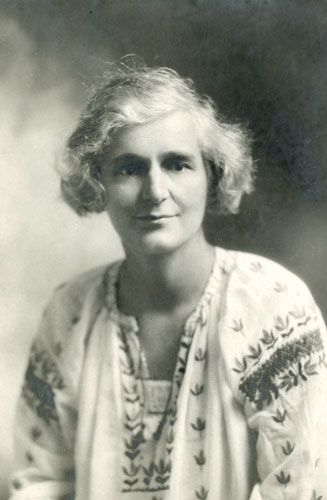
The Finlay Committee heard considerable evidence from Poor Man’s Lawyer organisations, and social and church groups. Their evidence remains an important account of the legal problem experienced by working people between the wars. Many suggestions were put forward, including Government grants to (then entirely voluntary) Poor Man’s Lawyer Centres. As Schuster later confided, there was a danger that “some exceedingly dangerous or embarrassing recommendations might have resulted”.[5]
In the end, Schuster could trust most of his committee. The final Finlay Committee report, in 1928, rejected any analogy between legal and medical help: “it is manifestly in the interests of a State that its citizens should be healthy, not that they should be litigious”. Schuster, however, had been right to distrust “the woman”. Dorothy Jewson, together with Rhys Davies MP (a former coal miner) issued a minority report, advocating local authority advice centres. Schuster had postponed the idea of a general civil legal aid scheme, but had not stopped it. The same ideas would return, with force, in 1944 when the Rushcliffe Committee advocated a paid scheme.
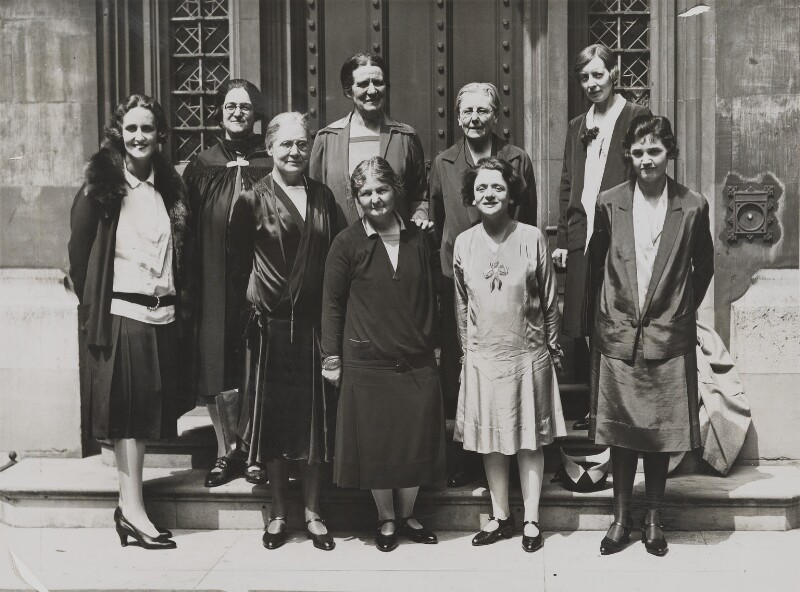
So what are we to make of these pioneer women? Although historical fiction is often desperate to find early examples of women playing male roles, this group do not lend themselves easily to contemporary fiction. There is something too austere about them, with their severe expressions, eclectic dress sense and strongly held political and religious beliefs. They lived their lives within a network of trade union, Labour Party and church organisations that can appear baffling to modern readers. Yet you have to admire their energy, the scope of their concerns, and the way they used their contacts to make trouble for those in charge.
[1] See her letters of Schuster of 21 January 1924, 4 April 1924, 16 May 1924 and 11 March 1925 (LCO 979).
[2] Fry’s letter of 12 February 1924 drew the somewhat weary comment that she “was on the same lines as Miss Tuckwell in this matter” (LCO2 979).
[3] According to the Salvation Army website, “Edith Mary Watson [née Wall], Sarah Jane Baines [née Hunt] and Sarah Maclardie Amos [née Bunting] were three women whose gender politics, religious beliefs and socialist principles led them not only to become involved in The Salvation Army and the Women’s Movement, but also the Labour Movement at the turn of the century”. See https://www.salvationarmy.org.uk/about-us/international-heritage-centre/international-heritage-centre-blog/salvation-and-suffrage
[4] Letter from Schuster to Anderson (Home Office) 13 March 1925.
[5] Schuster to Mr Justice Finlay 23 February 1928.
